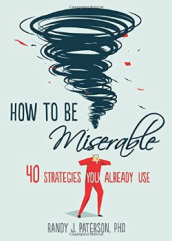
Things You Want Customers Saying About Your Business,
for Success magazine.
How to Stand Up for Yourself, for Success magazine.
15 Negotiating Tips from People Who Always Get Their Way, for Success magazine.
For mental health, know when it's time to escalate your search for help and treatment, for The Dallas Morning News.
I was raped, but is it courageous of me to say so? for The Dallas Morning News.
for Success magazine.
How to Stand Up for Yourself, for Success magazine.
15 Negotiating Tips from People Who Always Get Their Way, for Success magazine.
For mental health, know when it's time to escalate your search for help and treatment, for The Dallas Morning News.
I was raped, but is it courageous of me to say so? for The Dallas Morning News.






